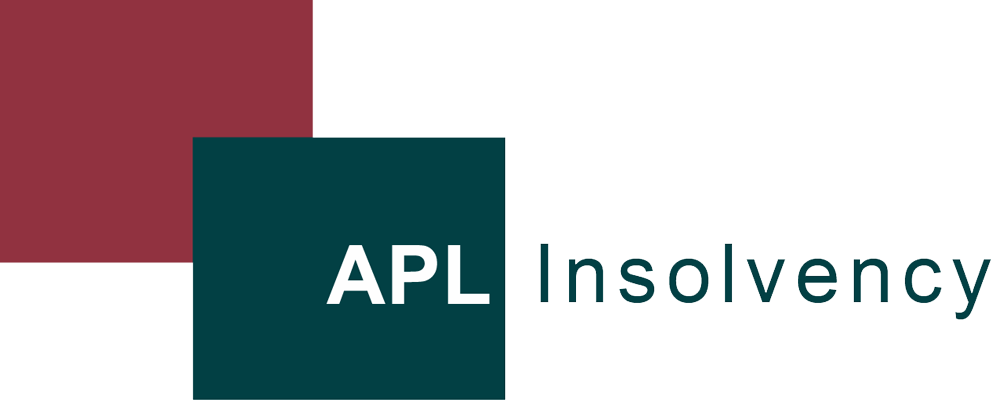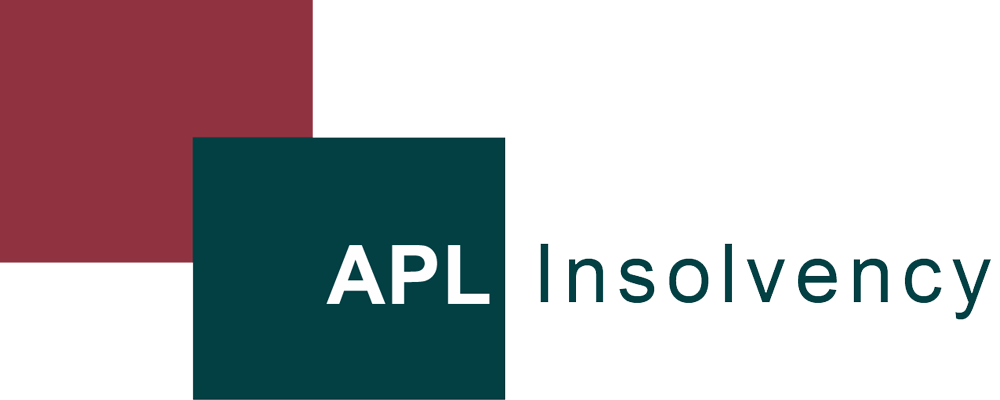When a company is experiencing financial difficulties, directors often find themselves putting out “spot fires” just trying to stay afloat. Under pressure from creditors, many directors end up making unwise decisions such as extending credit lines, borrowing excessively, drip-feeding funds to creditors just to gain some extra time or simply making promises they know they can’t keep. In desperation, directors may sell their personal assets or borrow from family and friends to raise funds for their company.
While possibly gaining some additional time, it is also likely that the above steps may simply serve to delay the inevitable and the company may still find itself in trouble If it is unable to pay its debts as and when due. If that occurs, a creditor or creditors (and especially, the ATO) may well lose patience and take action to wind up the company in court in order to try to recover their unpaid debt.
Unfortunately, many directors leave it too late to seek financial advice from an experienced and qualified professional. This often leaves few alternatives for the company other than liquidation.
It really is at the first sign of any financial difficulties that it is critical to seek specialist insolvency advice about the options that may be available. It is at that stage when there is the greatest likelihood of an outcome in the interests of all stakeholders.
Directors are generally unfamiliar with insolvency procedures and it can be difficult for directors to know where to turn when faced with financial trouble. They might decide to speak to their existing accountant who may be able to assist however, if the company’s existing accountant is unable to help, seeking advice from a qualified insolvency practitioner is likely to be the best approach.
If directors know what to discuss with their accountant, it can assist the accountant in providing them with a properly informed opinion and potentially have the benefit of eliminating the need to speak to an insolvency practitioner if appropriate strategies can be implemented at an early stage.
Be upfront about the company’s financial situation
Right out of the gate, directors need to be upfront and honest with their accountant and/or insolvency practitioner about the company’s financial situation.
If they are experiencing pressure from creditors due to unpaid bills, scrambling to find ways to pay for supply materials or meet payroll or are unable to pay statutory liabilities when they fall due, it is clear the company is in difficulty and action needs to be taken.
Unfortunately, the longer directors wait to discuss the company’s financial difficulties with their accountant or an insolvency specialist, the greater the likelihood that they will be left with no option other than to wind up their company.
It is critical that when a company is in financial difficulty, company directors speak with their company’s accountant or seek expert insolvency advice at an early stage and before selling personal assets or taking other actions to deal with company debt.
Signs that the company may be insolvent
While directors may not want to consider the possibility that their company may be insolvent, if they are able to recognise the early signs of insolvency they are likely to be in a much better position to address problems early.
Familiarity with the early signs of possible insolvency will enable directors to be in a much better position to implement strategies to address problems early or to consider their options before it is too late.
Some indicators that a company may be insolvent are when the company is:
- experiencing continuing losses
- issuing dishonoured cheques
- entering payment arrangements with creditors
- exceeding bank overdraft limits
- not paying creditors or paying outside trading terms
- dealing with suppliers requiring COD or stopping supply
- unable to pay its statutory liabilities
- failing to meet statutory lodgements
- receiving legal demands / judgments / warrants from creditors
- making rounded sum payments to creditors
- unable to access external funding
- failing to maintain adequate books and records
Whether seeking to increase revenue or cut costs, negotiate with creditors or to access external sources of funding, directors are likely to find more options available to them if they are proactive and take action early.
In addition, by acting early, directors are also likely to be in a much better position to explore options such as appointing an external administrator which can enable them to put forward an offer to creditors to settle all unsecured debts of the company. A voluntary administration has the potential to both save the company from being wound up and provide a better outcome for the company’s creditors compared to a liquidation scenario.
Be aware of ATO director penalty notices (DPN)
Directors should also be aware that the Australian Taxation Office (ATO) can issue Director Penalty Notices (DPNs) to hold directors being held personally liable for outstanding company tax debts when a company has failed to pay PAYG, GST or superannuation when due or has failed to lodge required tax returns such as Business Activity Statements (BAS) within three months of the due date.
A DPN is a form of enforcement used by the ATO to ensure that companies are complying with their taxation obligations.
If a company has maintained its tax lodgements but has failed to pay its tax liabilities, the ATO may issue a DPN that gives the director(s) twenty one (21) days to either pay the tax debt in full or appoint an administrator or liquidator to deal with the company’s outstanding debt. Failure to pay the debt in full or to appoint a liquidator or administrator within the twenty one (21) day period will likely result in the directors being held personally liable for the unpaid tax debt.
If a company has failed to lodge BAS or other returns or pay taxation liabilities within three months of the due date, the ATO may issue a ‘lockdown’ DPN which results in directors being held personally liable for unpaid company tax debts immediately. Payment of the outstanding amount is the only way to deal with the DPN at that stage.
It is important for directors to be aware of these possibilities and to discuss them with their accountant early to ensure that they avoid receiving a DPN and being held personally liable for unpaid company tax debts.
Directors should speak to their accountant as early as possible
A company’s accountant is an excellent source for directors to obtain proactive advice that should never be overlooked.
Accountants do much more than lodge tax returns. They are an invaluable source of information and are able to assist company directors in both good times and bad.
As soon as a company is experiencing financial difficulty, directors should speak to their accountant to help them understand insolvency and to explore ways to deal with the situation including:
- exploring ways to reduce expenses and/or increase revenue so the company can trade out of its difficulties;
- negotiating informal repayment arrangements with creditors to meet outstanding debt obligations;
- seeking sources of external funding or investments;
- considering whether a formal insolvency appointment such as a voluntary administration is appropriate.
Once directors are aware of the options available to the company, they are in a much better position to determine whether it is possible to trade out of their situation or whether they will need to find other solutions.
Unfortunately, often the options available to directors are limited. The company may be unable to reduce costs or increase revenue sufficiently or quickly enough; creditors may be unwilling to provide additional time to pay or to enter into a payment arrangement; directors may be unable to access external funding or contribute their own funds to deal with temporary cashflow problems.
Regardless of whether directors are able implement strategies to deal with their current financial issues, it can be very helpful for them to seek formal insolvency advice. In addition to helping directors minimise their exposure to risks such as insolvent trading claims in the event their company does end up in liquidation, it will also enable them to properly assess all available options and with that knowledge, to better compare the risks and benefits of each potential course of action.
If the directors determine that their company’s options are limited in the circumstances, or if they have tried to implement strategies without success, it is important that they seek formal insolvency advice as early as possible.
Communication is important when a company is experiencing financial difficulty
If a company is experiencing financial difficulty, communicating with the company’s creditors is likely to provide the best chance of retaining their support.
The sooner creditors are informed and aware what the company is experiencing, the more likely it is that they will view the directors as sincere in their desire to repay the outstanding debt and continue to support the business. This is likely to make it easier for directors to negotiate arrangements with creditors and avoid being blindsided by creditors suddenly stopping supply or insisting on COD.
While some creditors may still decide they should only trade with a company on a COD basis if it is facing financial trouble, early communication may still be beneficial in retaining the support of creditors and providing the directors with the widest range of options to deal with the company’s situation.
How an insolvency practitioner can assist
While accountants are an invaluable course of assistance to company directors, it is important that directors seek the expertise of an experienced and qualified insolvency practitioner when their company may be facing insolvency.
Insolvency practitioners specialise in dealing with companies in financial difficulty and can advise directors about the options available for their company given its own unique circumstances.
It is important to remember that initial discussions with an insolvency practitioner are generally without cost or obligation so directors and their accountants should ensure they utilise this invaluable resource when a company is potentially facing insolvency.
Conclusion
Directors should speak with their company’s accountant as soon as they realize their company is in financial trouble so the company’s accounts can be reviewed and options considered.
However, it may also be helpful to get an insolvency practitioner involved at an early stage to assist with identifying the available courses of action and when considering whether a company may be able to trade out of its situation or whether a formal appointment is required.
Contact Us
APL Insolvency
Address:
Level 5, 150 Albert Rd, Sth Melbourne, Vic 3205
P. O. Box 841, Sth Melbourne, Vic 3205
Hours:
Monday - Friday 8:30 am – 6:00 pm
Phone:
Email:
Website:

